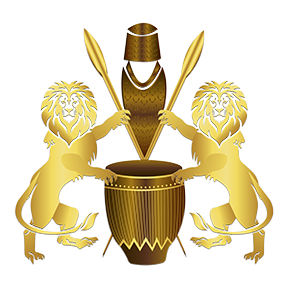Religion
The Batooro had a concept of a supreme being Ruhanga, who was believed to have created all things. He was believed to be a good and benevolent being who unless wronged could not do harm to the people. However, it was believed that the world was full of evil doers, evil spirits and sorceress who could employ their magic to undermine Ruhanga and cause disease, misfortune, barrenness, death and droughts or even bad weather.
The Batooro believed that there existed mediums, some of whom were agents of the devil while the good ones were agents of Ruhanga.
| In the Mandwa cult people are possessed by spirits of divine heroes. Those possessed are called Mandwa, and the cult centres around Ryangombe, their king. In this cult, the hero-god and his surroundings are represented by a living person who wears the requisite insignia of the hero he or she represents. Fellowship with these heroes can be gained by initiation (becoming a Mandwa) and the aim is, through fellowship with the savior Ryangombe, to be transferred into a higher quality of human existence and to become a sew person, to become divined. |
The Batooro also believed in the Mandwa cult.
Shrines were constructed for the worship of emandwa in every home. The Mandwa were usually worshipped and praised by playing of entimbo (drums and trumpets). In the actual process of worship, people would wear skins (emikako) knitted with beads and cowrie shells. An important medium of the Mandwa would wear a six centimeter bark-cloth material with horns on the head (ekisingo). The whole process of worshiping involved a lot of eating and drinking.
In the event of disease, death or misfortune, a mufumu (diviner) would be consulted to interpret the demands of emandwa. Thereafter, appropriate measures would be taken to appease the mandwa.
Supplications to the Mandwa were normally effected at night. A man would put fire in front of the house and pronounce his problems to the Mandwa. The language used in addressing the emandwa was slightly different from the common one used in ordinary parlance. The pronunciation of certain words was slightly altered. Surprisingly, in talking to emandwa the Batooro would use Runyankole terminologies, for instance omukama was pronounced as omugabe, okurora, as okureea, omwaana as omwerere, and several others.
